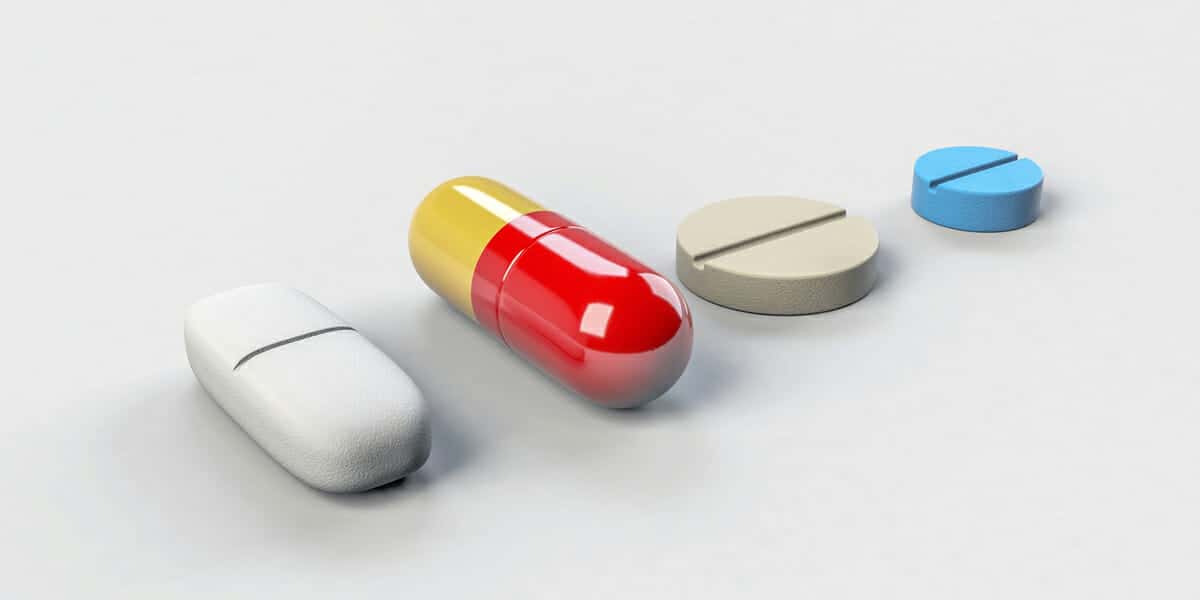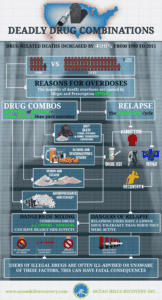Death by drug overdose has become increasingly common thanks to the widespread popularity of prescription drugs and other opioids. Overall, opioids were responsible for more than 33,000 deaths[1] in 2015, four times the amount in 1999. Drug-related deaths are still on the rise.
Symptoms of drug overdose will vary depending on the type of drugs being taken. In the case of opioid overdose, respiratory failure and reduced heart rate are common signs. Users may slip into a coma and die as a result. An opioid reversal drug, naloxone, can be administered to reverse the effects of an overdose and bring a patient back to consciousness; however, if non-opioid drugs are involved in the overdose, naloxone will not be as effective. This makes drug-mixing especially dangerous.
(Continued after image…)
Why Do Overdoses Happen?
People die of drug overdose for several reasons. One problem is that individuals may relapse after a period of being drug-free. When this happens, their bodies will not have the same tolerance as when they were active users, and the same dosage of drug that they are accustomed to may now be lethal.
Combinations of drugs can also have deadly effects that can catch users by surprise. Individuals may not realize that certain substances may have additional side effects when mixed with others.
Some of the most deadly drug combinations include:
Gray Death
A new designer drug[2] created to be more potent than heroin, this cocktail includes a combination of heroin, fentanyl and the animal tranquilizer carfentanil. Other drugs may be included in the mixture as well. Because the mixture is 10,000 times more potent than morphine, overdose is extremely easy and very dangerous.
Alcohol and Benzodiazepines
“Benzos” like Xanax and Valium are designed to reduce acute anxiety and provide a sense of calm. Whether taken as-needed for medical purposes or used recreationally, though, benzos should not be taken with alcohol as they can substantially lower the user’s alcohol tolerance. Black-outs are also more common, and these memory issues can lead to drinking more than you realize.
Heroin and Cocaine
Mixing “uppers” with “downers” does not cancel out the effects of each drug. The drugs will continue to have effects on the body even if your mind feels relatively clear. This can mean that the quantity of drugs in your system is higher than you expect.
Antidepressants and Ecstasy
Antidepressants mix poorly with many substances, including alcohol. One of the most deadly drug combinations however occurs with ecstasy, a drug that raises serotonin levels in the brain. Antidepressants cancel out these effects, leading to users to take more of the drug to compensate.
Just because you may not feel high does not mean that the drugs are not affecting your system[3]. Because some drugs can interfere with the effectiveness of other drugs, you may feel relatively sober while your body suffers from overdose symptoms.
How Do I Avoid Deadly Drug Combinations?
Due to the underground nature of drug use and addiction, there is often little information available to drug users about the safety of new drugs they may try. Drugs purchased on the street are not regulated, and the risk of accidental overdose is very high. However, even mixing prescription drugs may be extremely dangerous.
If you are struggling with drug abuse, we can help. Don’t leave your safety and health in the air. Contact an addiction professional today for a confidential assessment.
Sources:
[1] https://www.cdc.gov/drugoverdose/data/statedeaths.html
[2] https://www.drugs.com/illicit/graydeath.html
[3] https://drugabuse.com/4-deadly-drug-combinations-that-can-kill-you/














